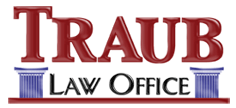|
How do bank accounts pass after my death?
The answer will depend upon the type of account you established when you signed the bank’s signature card. Some types of bank accounts pass under the terms of your will, while other types of accounts pass outside of your will and do not become part of your estate. The following is a list of common accounts that banks offer and how each passes after death.
Joint Account, Tenants in Common or Joint Tenancy.
Each person owns the funds in the account in proportion to his or her contribution, unless it is shown otherwise. Any person on the account can withdraw all of the funds, even if deposited by another person on the account. The funds on deposit on the date of death pass under the deceased’s will to the extent of his or her contributions.
Joint Tenants With Rights of Survivorship (JTWROS)
This account is established in the names of two or more persons by signing a survivorship agreement. The survivor(s) take all sums on deposit upon the death of one person. The funds on deposit at the time of death do not become part of the estate of the deceased.
Payable on Death Account (POD)
The funds in the account belong to the person obtaining the account as long as he or she is alive. At death, the funds pass outside of the deceased’s will to the person named as beneficiary.
Convenience Account
This is an account established by one person in his or her name which also names a cosigner. The terms of the agreement provide that the account is established for the convenience of the depositor. Both the depositor and the cosigner can withdraw all of the funds from the account during the depositor’s life. After the death of the depositor, the funds in the account pass according to the depositor’s will and do not belong to the cosigner.
Trust Account
This is an account in the name of one or more persons as trustee for one or more beneficiaries. During the trustee’s life, the sums on deposit belong to the trustee (unless it is an irrevocable trust, in which case the funds belong to the beneficiary). Upon the trustee’s death, the sums on deposit pass to the beneficiary.
If my spouse and I put our wills in a safe deposit box and one of us dies, can the survivor get the will out of the safe deposit box?
Yes. If a safe deposit box is held in the name of two or more persons jointly, any one of the persons is entitled to access to the box and shall be permitted to remove the contents at any time. The death of one holder of a jointly held safe deposit box does not affect the right of any other holder to have access to and remove the contents from the safe deposit box.
If you have a safe deposit box in one name only, who can get into the safe deposit box after the death of the safe deposit box holder?
The bank should allow the following persons to examine the safe deposit box without court order: (1) the surviving spouse; (2) the parents; (3) any adult children or grandchildren; and (4) a person named as executor who presents a copy of a document that appears to be the will of the box holder.
If the safe deposit box is in one name and the holder of the box dies, what items can such person remove from the safe deposit box?
The bank is allowed to deliver the will to the Probate Clerk or to the person named as executor. Any life insurance policies can be given to the beneficiaries, and the deed to a burial plot may be given to the person examining the box. No other items may be removed from the box until court authority is obtained.
